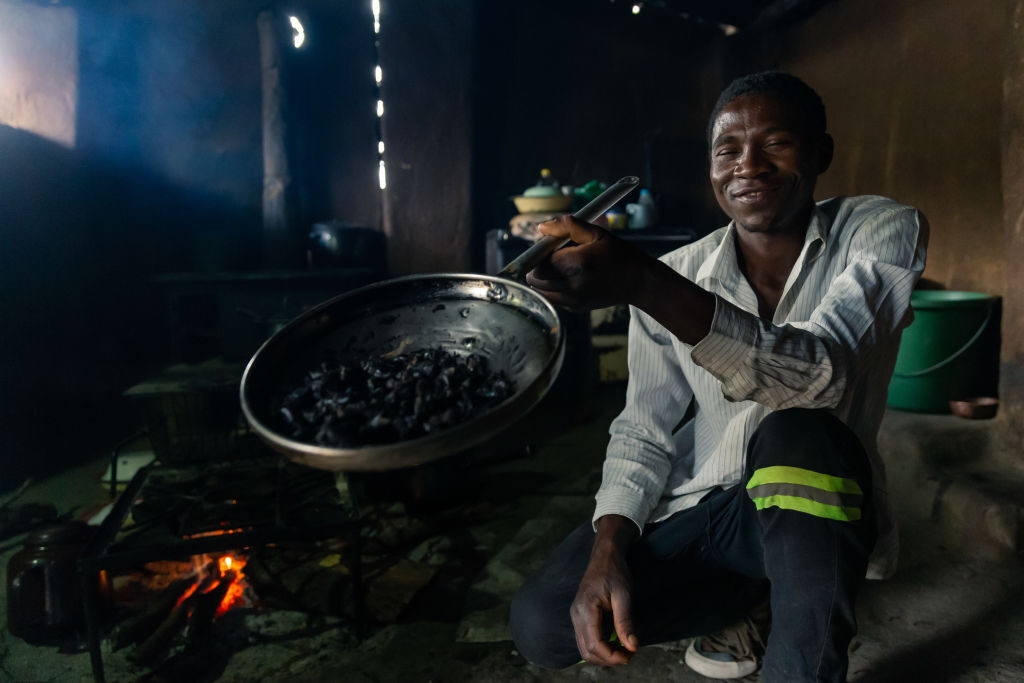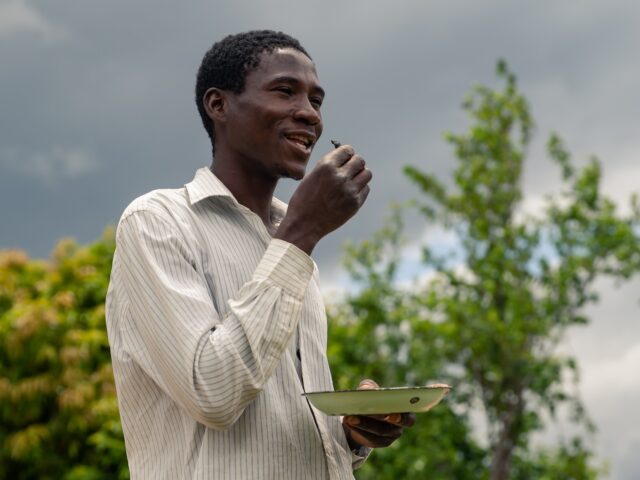If you’re hungry you’ll eat anything to survive. This basic premise is being tested in hunger-stricken African nations where UK aid agencies are trialling insect diets for those suffering starvation in countries once able to feed themselves.
UK spending on pushing the theory of insect consumption – a proposition long linked with climate activists – is targeting the Democratic Republic of the Congo (DRC) and Zimbabwe, the Guardian newspaper reports.
The outlet says a £50,000 (U.S.$57,000) UK aid project in the DRC is putting African caterpillars, migratory locusts and black soldier flies on the menu.
The move comes after South Korean scientists outlined in a study published last month eating worms could help humanity survive in a future world starved of food and nutrition, as Breitbart News reported.
The researchers cooked mealworms, or beetle larvae, along with sugar to create “meat” — and they claim it tastes authentic as an acceptable alternative nutrition source, although “image problems” remain in some nations used to more sophisticated daily fare.
Not so in Africa.
The Catholic Agency for Overseas Development (Cafod), a charity in England and Wales, hopes the Congolese will begin farming insects in an industrialised manner as a way of ending starvation problems in the region.
Cafod did not respond to a Guardian inquiry about how it intended to use the money.
Meanwhile in Zimbabwe, another development project is underway to use mopane worms in porridge served in schools.

File/Earnmore Chikavaza shows off his pan with fried chafer beetles which were fried after first boiling in a pot after a succesful harvest in Mhondoro, Zimbabwe, on December 16, 2020. (JEKESAI NJIKIZANA/AFP via Getty Images)
The slimy green caterpillars, which turn into emperor moths, are already commonly picked for consumption from vegetation during the rainy seasons in rural parts of Zimbabwe.
Dr Sarah Beynon, the founder of the Bug Farm in Pembrokeshire, England, and an academic entomologist, said aid projects promoting edible insects were “a sure way to save lives and improve nutrition of the poorest people on planet Earth.”
She told the Guardian: “We are also actively encouraging people in the developed world to include insects in their diets.
“With a population that has an appetite set to far exceed the planetary limits, and with current agriculture decimating biodiversity and changing the climate, we have no option but to change how we produce and consume food … and our views on the topic too.”
Both Africa aid projects were funded through UK Research and Innovation (UKRI), an arms-length body of the Department for Business, Energy and Industrial Strategy.
A UKRI spokesperson confirmed to the Guardian: “We support specific research projects with funding, but we anticipate that the learnings and knowledge gleaned will benefit citizens around the world irrespective of their economic status. The protein and environmental benefits of consuming insects have been widely reported globally.”

COMMENTS
Please let us know if you're having issues with commenting.